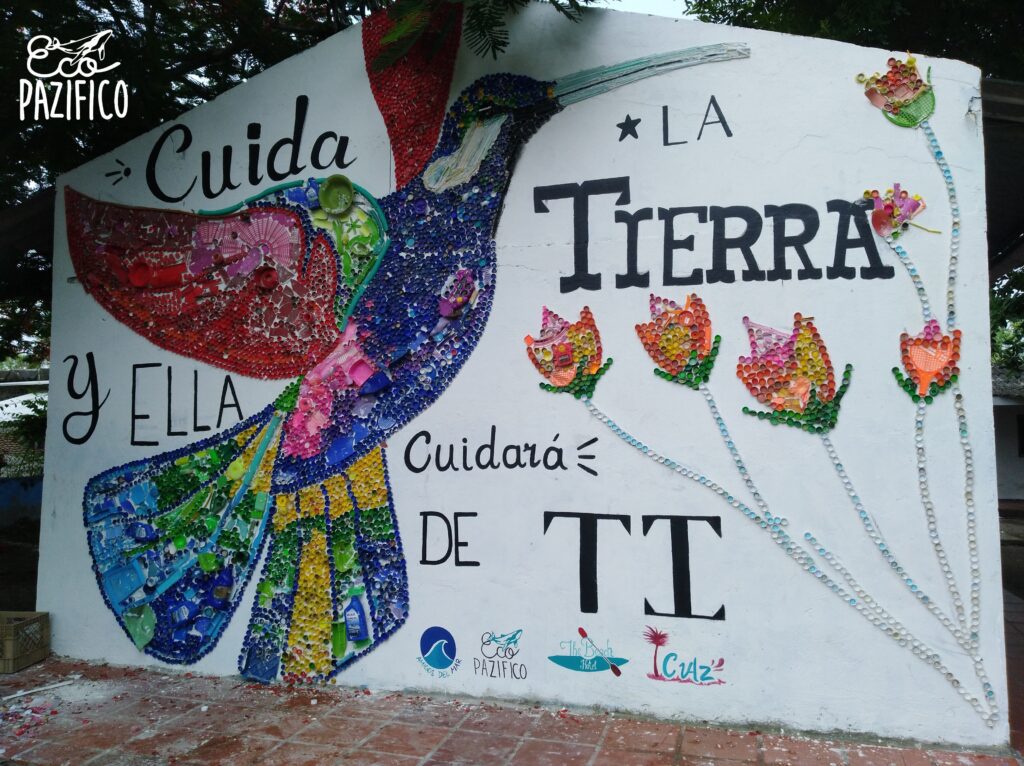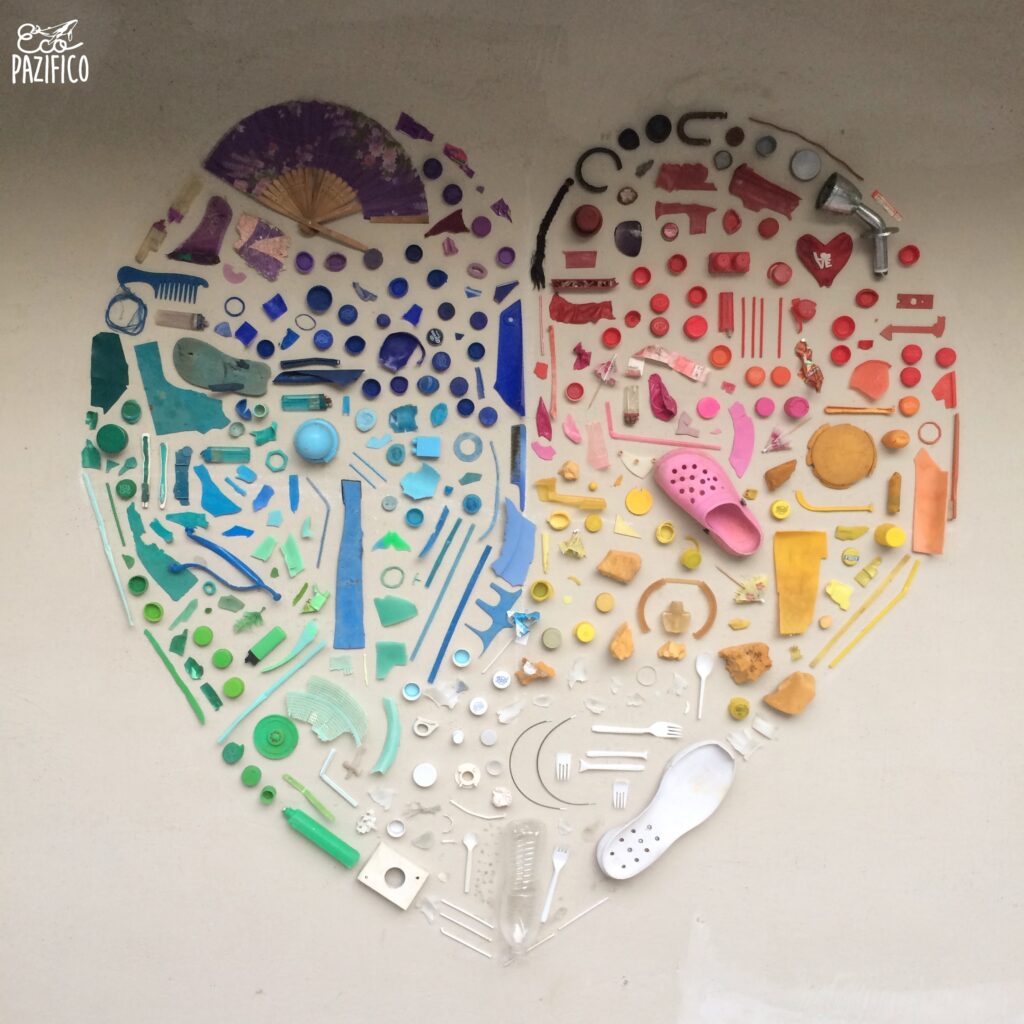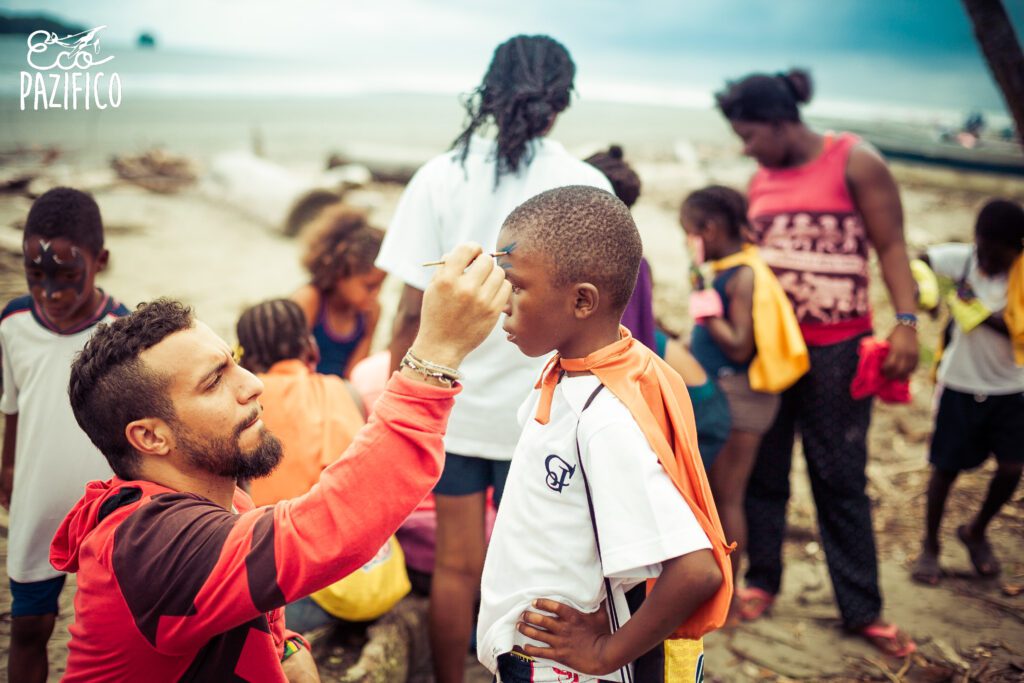Building a sustainable future for tourism and communities of the Colombian Pacific
A silent battle has been waged since 2014, led by the Fundación Ecopazífico, which fights to restore life and dignity to beaches that were on the brink of collapse


By Oscar Segura
The beginning of a mission
Rommy Schreiber, co-founder of Ecopazífico, did not know that her life would change radically when she first visited the beaches of Juanchaco. This coastal stretch, approximately one kilometer long, was overwhelmed with trash. It was a painful contrast: amidst the filth, majestic whales still came to give birth. But the spectacle of natural life in all its splendor was overshadowed by the sea of waste covering the sand. “I felt a deep sadness”, Rommy recalls. “Seeing the community living among the waste and no one doing anything about it”.

Rommy, with the soul of an artist and traveler, found a spark of inspiration in that disaster. What if art could be the key to reversing the situation? What if the waste could be transformed into something more than garbage? Thus, with a mix of hope and determination, Ecopazífico was born, a foundation dedicated to cleaning the beaches and raising environmental awareness through sustainable recycling.
The sustainable commitment to the beaches
The first challenge for Ecopazífico was to establish a recycling system in a wild territory, where nature imposes its own rules. Juanchaco, Ladrilleros, and La Barra, three communities located along this coast, became the focal points of an ambitious project. But the task was not easy. To reach these areas, volunteers had to navigate a treacherous sea in small boats, facing not only the harshness of the weather but also threats like dengue, malaria, and poisonous wildlife.
Additionally, this territory has been marked by drug trafficking, a shadow that has plagued Colombia for decades. Despite the challenges, Ecopazífico found protection in the Colombian Armed Forces and in the community itself. Trust and mutual respect became fundamental pillars, even when the government was negligent in its responsibilities.
Recycling as an art
In September 2014, Ecopazífico took its first steps with a group of children who helped clean the beach while learning about the importance of recycling. The plastic waste, which was once merely garbage, was given a new name: Maparé, meaning “material to revive.” With these materials, the children created toys, puppets, and works of art, transforming the concept of waste into an educational tool.
“The essential thing is not to promise material things”, explains Rommy. “People do not take care of what they have not fought to obtain. Offering knowledge and experience is what truly empowers the community”.


A tangible momentum day by day
The efforts of Ecopazífico resulted in the construction of the first Recycling Center in Juanchaco, a space co-created with the community to mitigate pollution and promote a circular economy. But the foundation did not stop there. With the support of the Universidad Nacional (“National University”, in English) and other organizations, the first Permaculture Center on the Colombian coast was also established, where projects are developed to desalinate water and accelerate the waste collection process.
In the first 8 years of work by the Fundación Ecopazifico (“Ecopazífico Foundation”, in English), from 2014 to 2022, a total of 11 tons of solid waste were collected from the beaches of Juanchaco, Ladrilleros and La Barra, all located in the Colombian Pacific, through community-led recycling efforts.
Throughout these collection efforts, a total of 5 community councils were involved, working on 8 selected beaches to ensure that the waste arriving on the shores was integrated into a circular economy framework, environmental education and initiatives related to the management of daily waste.
A path full of challenges
However, not everything has been easy. As the foundation grew, so did the challenges. Securing financial resources became a difficult task, especially as volunteers who were once willing to help without compensation began to demand monetary remuneration. Additionally, logistical difficulties in these remote areas, combined with insecurity and national strikes, tested the resilience of Ecopazífico.
Nevertheless, through the strength gained from various community recycling initiatives and a decade of awareness-raising efforts, the residents of the three beaches have come to understand the importance and magnitude of protecting their environment, the ecosystem, and the local flora and fauna, leading to an increasing number of volunteers joining the cause.
Over the years, Ecopazífico has also managed to establish numerous partnerships with government entities, such as the Ministry of Environment, transnational organizations that protect the environment, and supporters who see these initiatives as new opportunities for growth and recovery for the Colombian Pacific. This has helped strengthen the resources coming into the foundation and sustain the various ongoing initiatives. The challenge persists, but every day more supporters and volunteers join the effort.


The legacy of Ecopazífico
Today, Juanchaco has transformed into a tourist destination with more hostels and tour options, largely thanks to the tireless work of Ecopazífico. The community has embraced recycling as part of its culture, and other foundations have followed suit, activating in different areas of the territory.
“Despite everything, I feel excited and happy about what we have achieved”, confesses Rommy. “Our way of doing things has improved, and our human resources have strengthened. Now, with the first Permaculture Center up and running, we feel that we are building a sustainable future for this region”.
The legacy of Ecopazífico is more than just an effort to clean beaches; it is a movement that has inspired entire communities to reconsider their relationship with the environment. In a place where need is urgent and opportunities are scarce, Ecopazífico has shown that with determination, creativity, and community support, it is possible to build a cleaner and more sustainable future.
Want to Support This Cause?
Contact:
Rommy Schreiber: +57 (310) 422-1553 | info@ecopazifico.org


